Should I Use A Credit Card To Purchase A VPN?
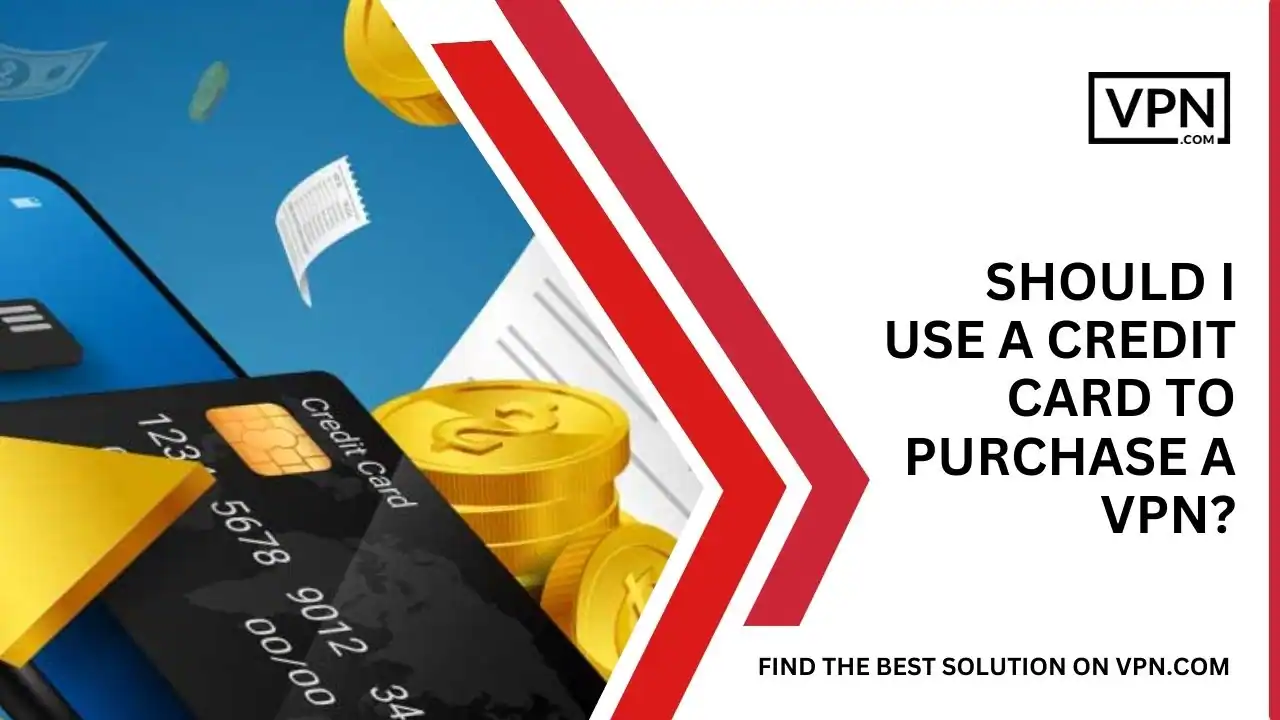
When looking to buy VPNs, many see the option to pay with a credit card. While a large number of VPN providers welcome card payments, it’s not common that some people in certain places can’t use this method. Acquiring an affordable VPN isn’t complex, but using a Credit Card To Purchase A VPN might be limited in some regions.
Paying for a VPN service using a card might seem simple to most but there’s a small risk for those who value their online privacy. When signing up, users have to share their personal details. Rumor has it that some card companies have stopped their customers from using a Credit Card To Purchase A VPN, and a few VPN companies have done the same.
Can We Pay Anonymously?
Considering a VPN’s purpose is to enhance privacy, using a Credit Card To Purchase A VPN might seem counterintuitive. One might expect seamless anonymous payment options. However, the reality is that attaining genuine anonymity when subscribing to a VPN isn’t a walk in the park. Practically every digital transaction you undertake, even with a Credit Card To Purchase A VPN, leaves a trail leading back to you; in this context, your VPN account.
But there is a silver lining. While the path might have many hurdles, the methods to cloak your payment do exist. You just have to see what suits you the best.

Get Started w/ NordVPN Today
- Top-rated VPN for OS unknown
- Ultra-fast speed in US in 2024
- Save 69% off with VPN.com Discount
- Plans starting at $2.99/month
- Rated 4.5/5 on Google Play with over 825,000 reviews
- Rated 4.7/5 on Apple App Store from 6,600 users
How Can You Protect Your Credit Card To Purchase A VPN?
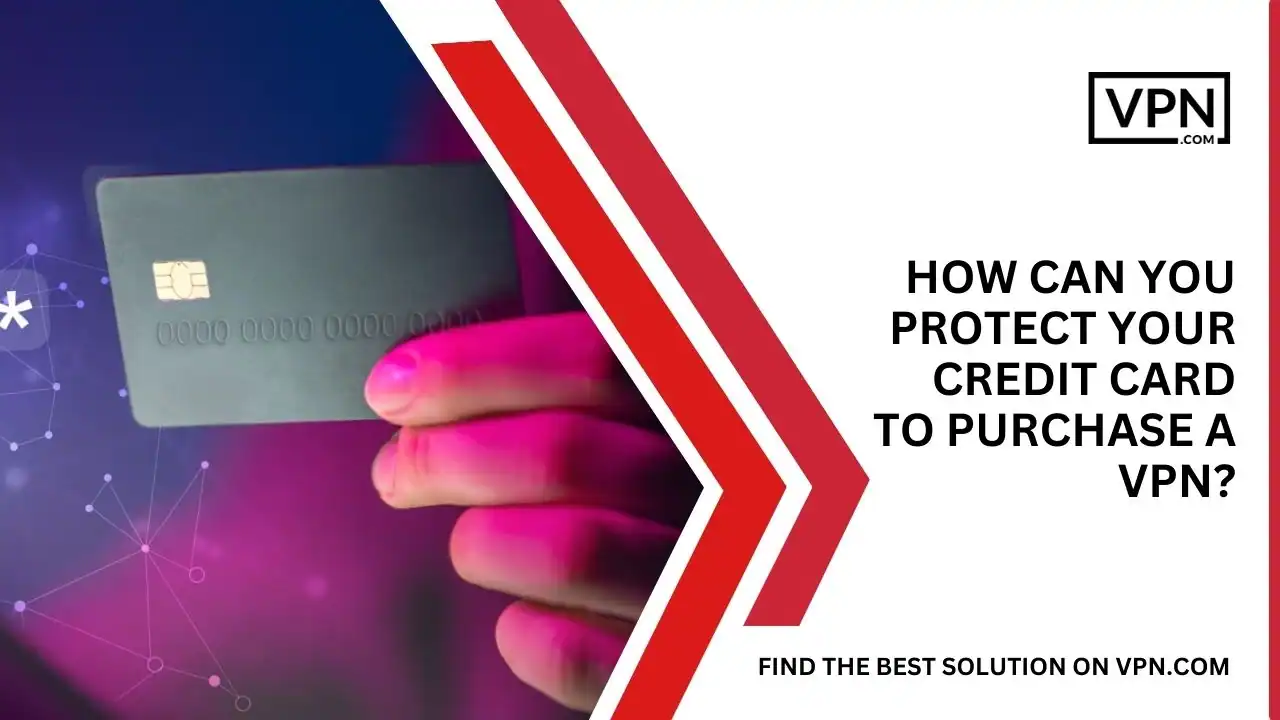
Many VPN services today boast about encrypting your online activities. Especially when you are making purchases using your credit card. However, when using a credit card to purchase a VPN, protecting your credit card details becomes a necessity when you haven’t set up the VPN itself.
Firstly, it’s crucial to grasp how online purchases work, whether you are using a credit card to purchase a VPN or something else. Any legitimate online shopping platform should be strong enough with what’s known as SSL or Secure Sockets Layer.
Breaking down SSL can get complex, but here’s the tip: When you access a website, it forms a strong bridge between its server and your device. This connection is solidified through a procedure dubbed a “handshake,” involving three distinct encryption keys. Both the website and your device have a key. While the third, the “session key,” ensures the connection remains intact.
Imagine you and a friend have a special handshake. If a stranger tries mimicking it, you would instantly spot the deception. Similarly, in this context, the imposter represents a hacker. So, how do you guard your credit card when using a credit card to purchase a VPN?
Occasionally, smart hackers, having planted malicious software on your device, exploit SSL transactions. This software distinguishes when you are making online transactions, like using a credit card to purchase a VPN. It redirects you to a counterfeit page which is seemingly secured with SSL. You are tricked into entering your details on this page, which then dispatches your credit card details to a hidden recipient. However, such deceptive tactics are infrequent and are increasingly challenging as browsers and systems grow more strong to these scams. Buying a VPN with a credit card isn’t always easy or foolproof!
And while these smart hackers may struggle to take your financial details, remember, the VPN service might retain a record of your transaction when you use a credit card to purchase a VPN.
Why Is It Safe To Pay Anonymously For VPN?
If you’re wondering, “is it safe to pay for NordVPN with credit card?” and want to keep your VPN private, then you should think about paying for it without leaving any clues about who you are. This is especially important for people like journalists, rights workers, hackers who work for good causes, and anyone trying to avoid internet blocks and spying.
The problem is when you use methods like a Credit Card to Purchase a VPN or pay via PayPal. It shows what you bought and details like your email, name, address, and phone number. This means your bank, the company processing the payment, and even some officials could figure out that you are using a VPN.
But don’t worry too much. If you’re still pondering “Is it safe to pay for NordVPN with credit card?”, there are ways to pay for a VPN without giving away your identity. You can use things like cryptocurrency, special payment services that hide your identity, one-time use or virtual cards, and in some cases, even cash. Keep reading to learn how to pay for your VPN without anyone knowing.
Why Is It Not Safe To Pay Anonymously For VPN?
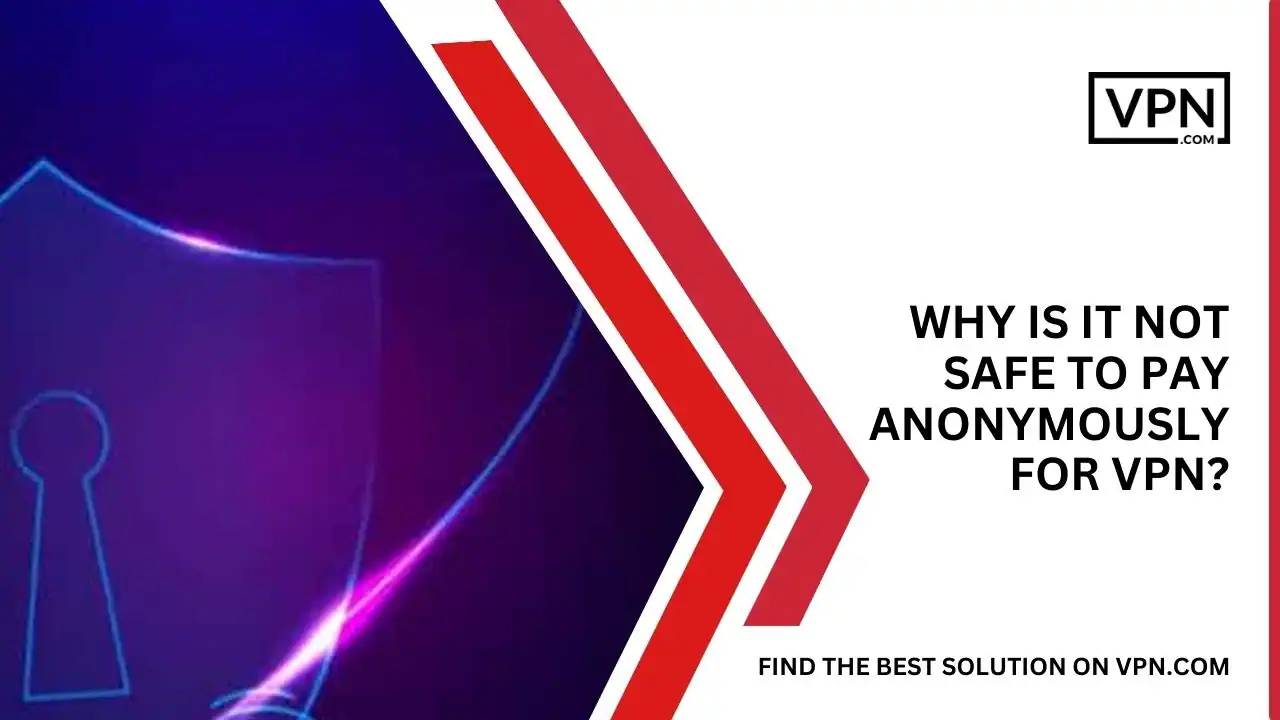
Sometimes, the effort to pay for a VPN without revealing your identity isn’t worth it. Here are instances when it is easier to just pay the usual way:
Refunds
If you are new to using VPNs or just trying a different service, then paying secretly, such as using a Credit Card to Purchase a VPN, could make it really hard to get your money back if you are not satisfied. Some anonymous payments don’t share enough about you to process a refund.
The Hassle of Anonymity
Let’s say you’re contemplating using cryptocurrency like Bitcoin or wondering, “is it safe to use a Credit Card to Purchase a VPN like NordVPN?” If you don’t already use cryptocurrency, setting up a wallet and buying the currency can be a chore. If you are not in a dangerous situation, all this effort just to pay for a VPN might seem too much.
Basic VPN needs
If you are not in a place where using a VPN could risk your safety and you just want it for everyday tasks. Like getting into work networks, watching blocked shows, or just some extra privacy, then there is no real need to use a Credit Card to Purchase a VPN discreetly. There’s no need to hide how you pay.
What Are Secure Anonymous VPN Payment Methods?
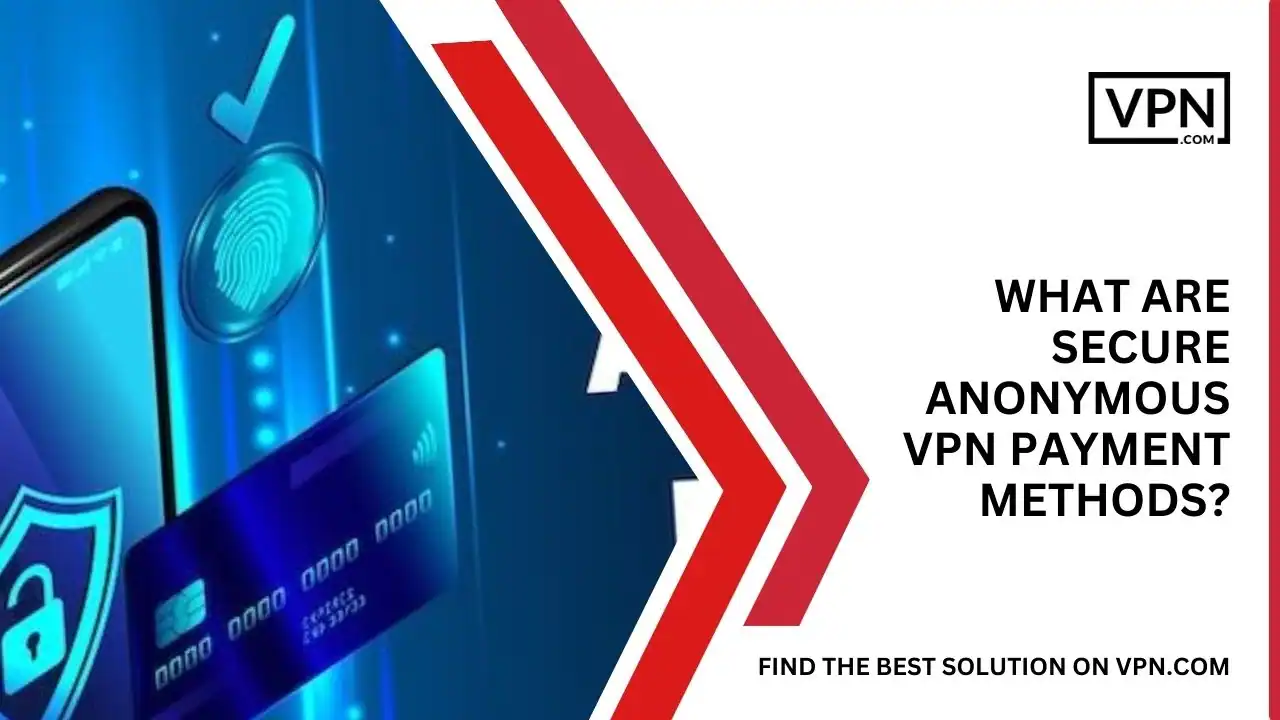
Paying secretly for a VPN can be tricky. Even though online payments leave tracks, there are ways to hide what you’re buying. Here’s how you can pay for a VPN without anyone knowing:
Cryptocurrency
This is a top choice for secret payments online. You just need an email linked to your crypto account. This email can be a separate one, so no one connects it to you.
Steps to buy a VPN with cryptocurrency:
- Get a crypto wallet that works with BitPay, CoinGate, or CoinPayments.
- When you’re ready to buy the VPN, use your separate email and pick Cryptocurrency as how you’ll pay.
- Follow the steps: either pay directly, use the QR code, or copy the details to make the payment.
Prepaid Debit Card
A prepaid debit card serves as another discreet way to cover your VPN costs. However, paying for VPN with credit card has its benefits too. Many leading companies provide these cards pre-loaded with funds for you to spend. This method ensures your bank account doesn’t display any identifiable transactions, keeping your VPN purchase separate from your personal details.
Steps to use a prepaid debit card for VPN payment:
- Select your VPN plan and proceed to the payment page.
- Pick the credit or debit card option for payment.
- Input the card’s details. If a name is requested, simply type “Gift Card.”
Disposable Virtual/Masked Credit Card
These temporary virtual cards let you shop or make payments, including paying for VPN with a credit card, using your real account without exposing your genuine credit card details. Keep in mind, though, this isn’t a completely hidden method; the transaction might still show up in your credit payment records.
Steps to buy a VPN with a virtual/masked card:
- Pick the VPN plan you want and head to the payment page.
- If prompted, select your desired payment option.
- Finalize and confirm your purchase.
Google Pay
Google Pay offers a simple and secure way to buy things online without disclosing your personal details. The VPN provider will only see your email (which can be a one-time use one), and the record of the purchase in your transaction history remains private.
Steps to use Google Pay for your VPN purchase:
- On the VPN payment page, select Google Pay as your preferred choice.
- If prompted, pick your payment method once more.
- Finish up by confirming your order or payment.
Gift Cards and VPN Retail Boxes
Using cash or gift cards stands out as the most private means to pay for a VPN service. However, few VPNs cater to gift card payments. Interestingly, NordVPN can be picked up from stores like Target or Walmart. In these stores, you will find a tangible VPN box containing an activation code and step by step guidelines, all of which can be paid for using cash.
Steps to buy a VPN with a gift card or retail box:
- Head to a local store, like Walmart or Target, that stocks VPN boxes or gift cards.
- Buy your desired VPN box or gift card and pay using cash.
- Use the provided instructions within the VPN box or on the gift card to set up your VPN service.
How Can We Setup A VPN Anonymously?
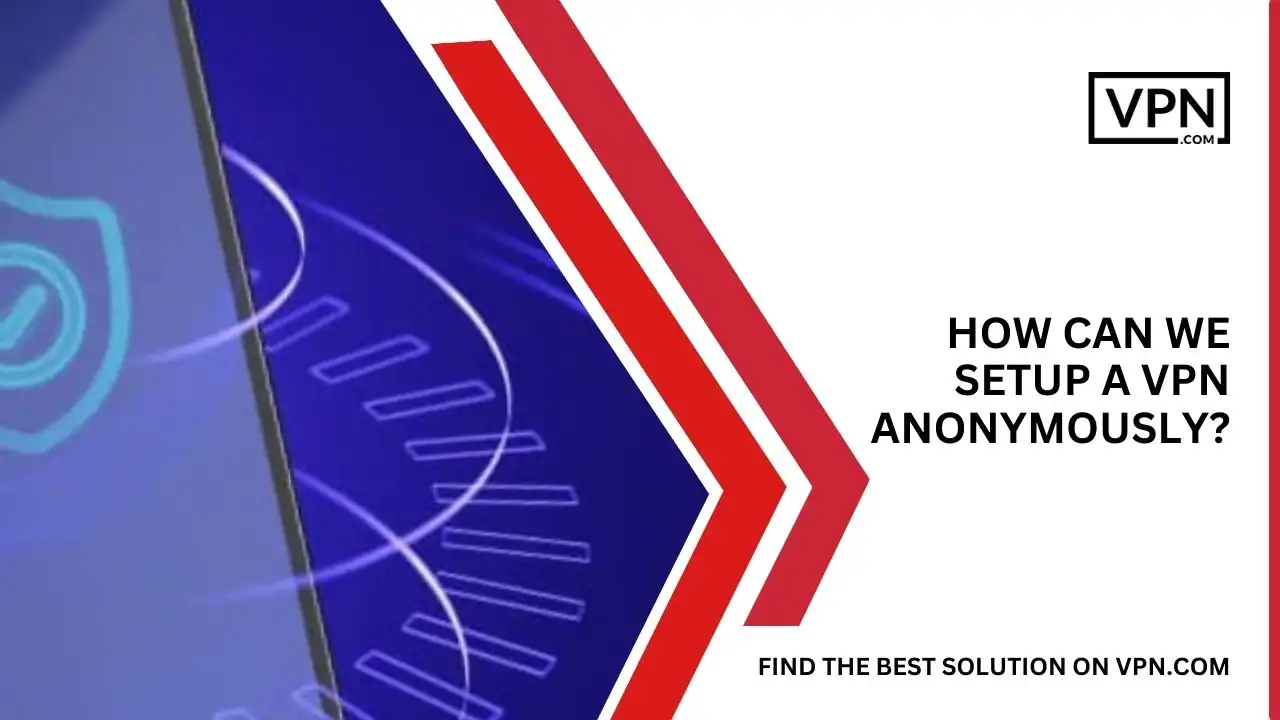
Apart from going for cryptocurrency or gift cards. There are two key steps to ensure utmost anonymity when buying a VPN: conceal your IP address and utilize a temporary email.
Hiding IP Address
To stop fraud VPN companies often keep a record of buying activities on their sites. They keep it even if you don’t use a credit card or PayPal.
One key thing they note is the IP address when you buy something. If you get a VPN while using your home internet, they will note your home IP, leaving a clear trail.
Here are four smart ways to hide your IP when buying:
Use Public WiFi
A simple way to hide your IP is to connect through public WiFi; like at a coffee shop, library, or airport. Just make sure you don’t share personal details. It’s also better if the WiFi spot is not near your home. And it is even safer if you don’t use your own device to sign up for the VPN.
Try a Different VPN
You can use another VPN to hide your IP when signing up. Maybe a friend has one they can share or you are just changing VPNs. But pick a VPN that doesn’t keep records to avoid leaving any trace. Some VPNs might block you from signing up using another VPN. If this happens then turn on a feature called “obfuscation mode” if your VPN has it.
Use Tor
Tor is another way to hide where you are and your IP. But it is usually slower than a VPN. To use it, just download the Tor browser. If you can’t access Tor in your area then you can use a “bridge relay” which is harder to block.
Use the Tails System
Tails is a special system made to protect your online privacy. You can start it from a DVD or USB stick. It comes with the Tor browser and ensures all your online actions go through Tor. This way, you can use a Credit Card to Purchase a VPN without revealing your actual IP.
Using a Private Email Service
Every VPN provider usually requests an email address during registration, mainly for subscription management and customer assistance. But yes, occasionally, promotional emails might pop up. When paying for VPN with credit card, you add another layer of information. However, for those aiming for anonymity, sharing your primary email isn’t the wisest move.
The solution? Establish a separate and anonymous email solely for your VPN dealings. In this regard, ProtonMail stands out as an exemplary choice.
Founded from Switzerland, ProtonMail boasts robust privacy, courtesy of the nation’s stringent privacy regulations. All your correspondence remains encrypted, ensuring even the ProtonMail team can’t access them. Plus, they maintain no logs of your IP address.
The cherry on top? Signing up for ProtonMail doesn’t require any personal details, not even your given name.

Get Started w/ NordVPN Today
- Top-rated VPN for OS unknown
- Ultra-fast speed in US in 2024
- Save 69% off with VPN.com Discount
- Plans starting at $2.99/month
- Rated 4.5/5 on Google Play with over 825,000 reviews
- Rated 4.7/5 on Apple App Store from 6,600 users
Conclusion
Paying for a VPN without revealing your identity means leaving no trace that could link your online actions back to you. One of the most straightforward methods is using a Credit Card To Purchase A VPN. Of course, this method has its challenges and steps to follow. Opting to use Bitcoin or a gift card restricts your VPN choices. Remember to hide your actual IP when registering and opt for a distinct email.
Using a Credit Card To Purchase A VPN also means you will need to manually renew your membership. For many, such heightened privacy might seem excessive, but with a Credit Card To Purchase A VPN, it is still worth investing.
If your online activities might jeopardize your security, well-being, or good name, this added shield becomes crucial. We hope that with the information about using a Credit Card To Purchase A VPN, we have cleared all your confusion. If you still have any questions then feel free to ask us.
Customer Reviews for NordVPN: In-Depth Review, Tests, and Stats

Connection issues with MLB.TV
May, 2 2023

Prompt customer service
May, 6 2023

I would highly recommend
December, 15 2023



